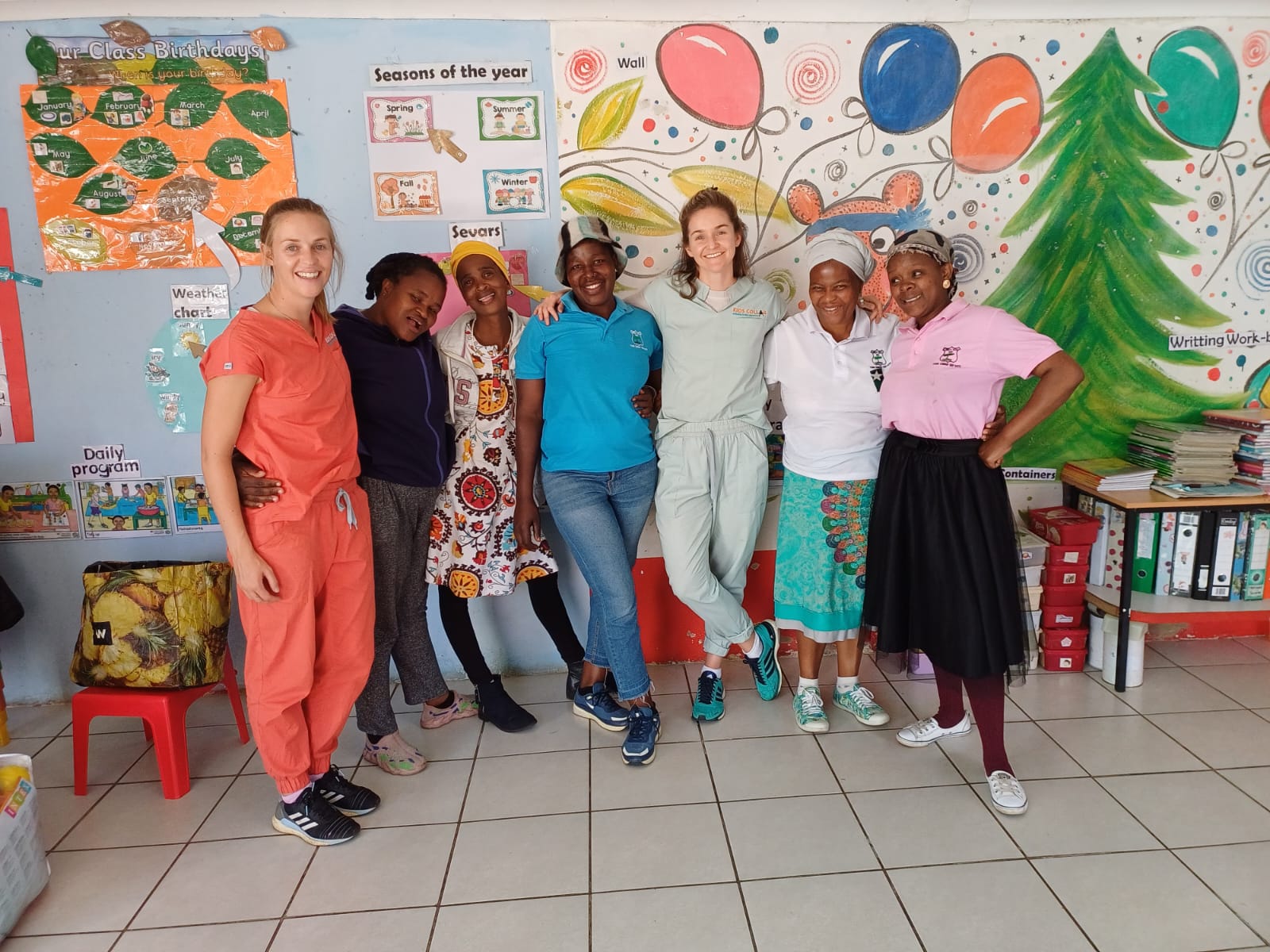Kids Collab developed a Physical Development and Wellbeing Programme with a core focus on empowering practitioners to integrate physical activity and Social and Emotional Learning (SEL) into a typical early year’s education school structure. The programme provides practitioners with the necessary training, knowledge, and resources to stimulate children’s physical development and well-being while aligning with the South African National Curriculum Framework (NCF).
The Kids Collab Programme is designed to equip practitioners with practical tools and ongoing support. The programme focuses on the following key areas:
- Gross Motor Development: Helping practitioners understand and introduce Fundamental Movement Skills (FMS) and SEL through engaging in age-appropriate games and activities.
- Brain Breaks: Assisting practitioners to incorporate short 2–5-minute activities that help energise, calm, and focus children.
- Breathing and Mindfulness: Supporting practitioners to introduce SEL strategies that promote calming techniques and self-regulation.
- Inclusivity: Providing inclusivity handbooks designed to support children who may be neurodiverse.
To evaluate the viability of the Kids Collab Physical Development and Wellbeing Programme, a pilot programme was implemented between October 2023 and May 2024. Kids Collab partnered with the Gauteng Department of Education (GDE) to pilot this programme in five low-resourced ECDCs in the Gauteng region.
The pilot sought to determine whether the Kids Collab programme could be effectively used as a resource by practitioners once they were trained. Specifically, it aimed to boost practitioners’ ability to integrate physical activity and SEL practices throughout the school day and to assess whether the programme would improve children’s FMS through increased exposure.
The GDE selected five ECDCs in the Gauteng urban townships of Zandspruit, Cosmo City, and Diepsloot. These centres are all in low socio-economic areas, providing a valuable sample to understand how the Kids Collab Programme can operate in resource-scarce environments.
Eighteen practitioners across the five centres participated in the Kids Collab training, with three to four practitioners taking part from each centre. The training sessions were conducted on-site at each centre on separate days, scheduled in the afternoons after the children had gone home. Each session lasted three to four hours, providing an in-depth, interactive experience for the practitioners.
Resources developed for this programme are available here: https://kidscollab.earlylearningresourcenetwork.org/

